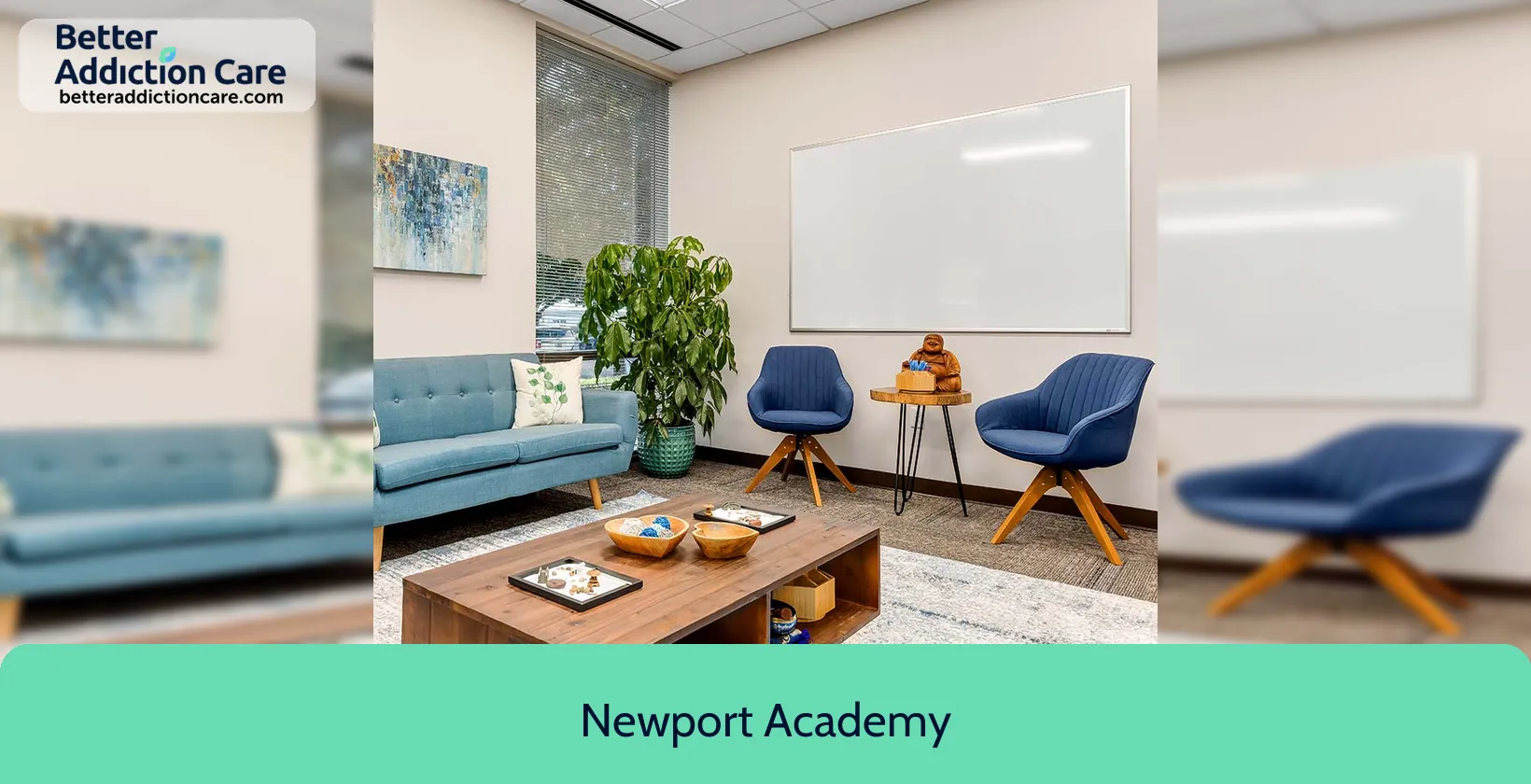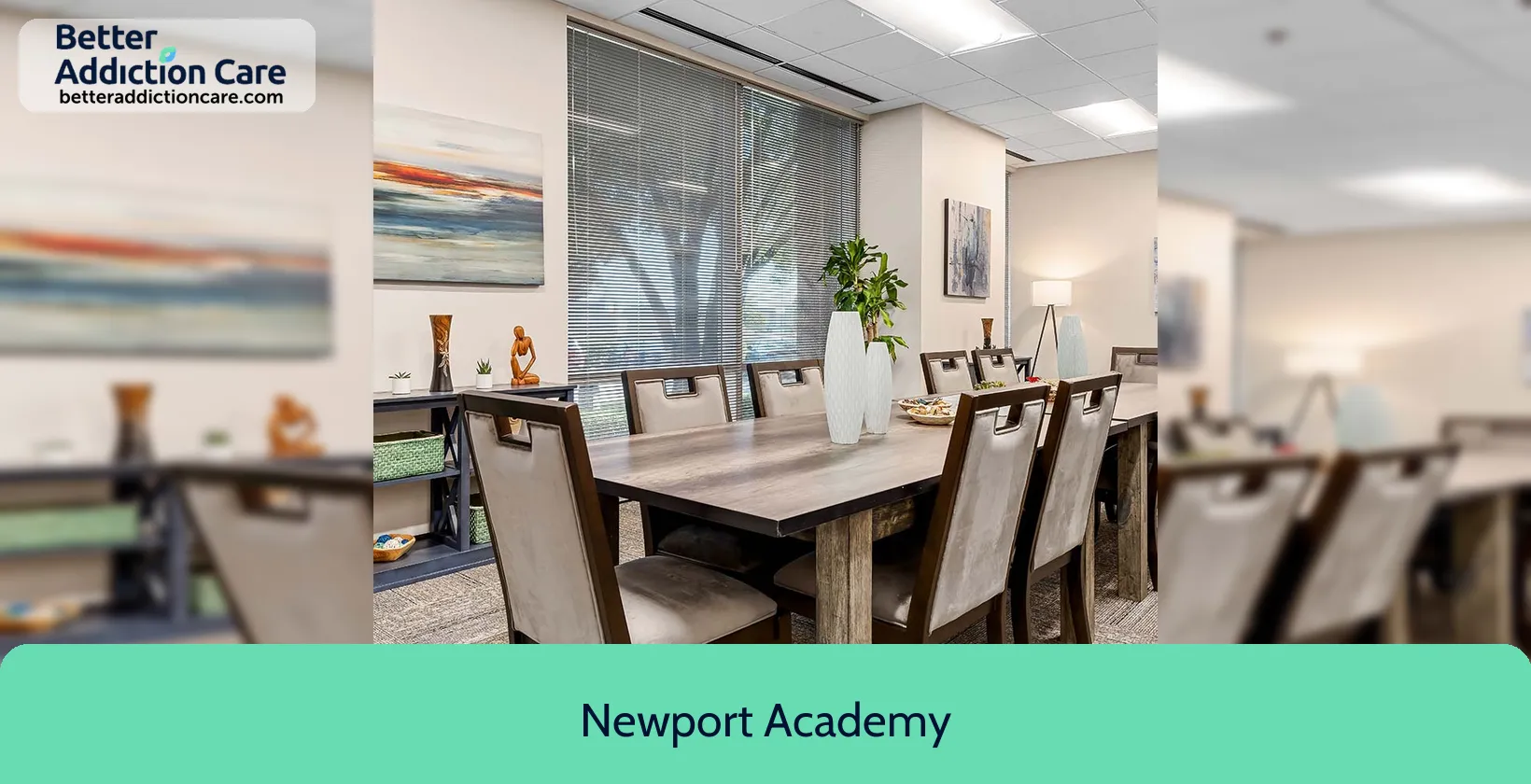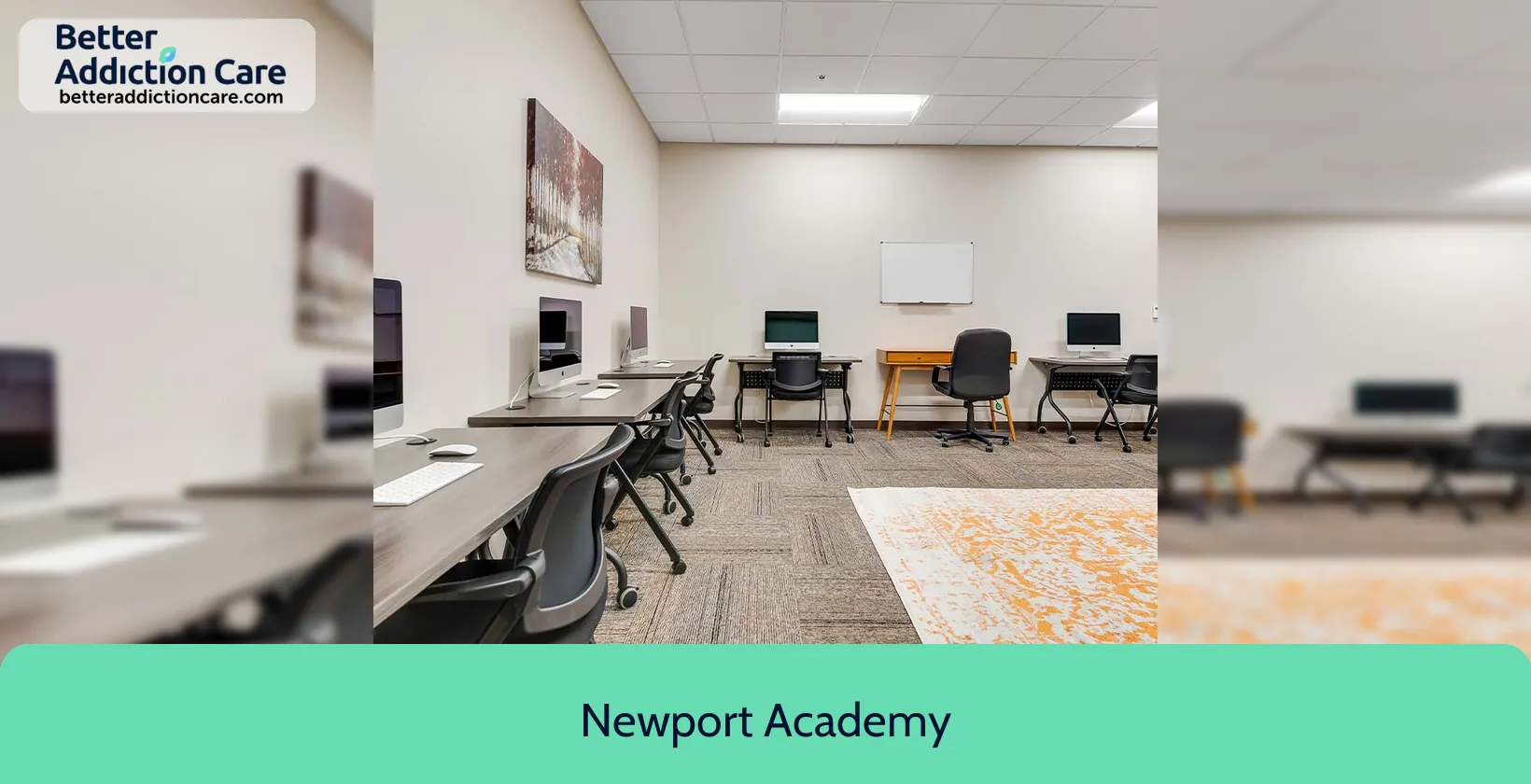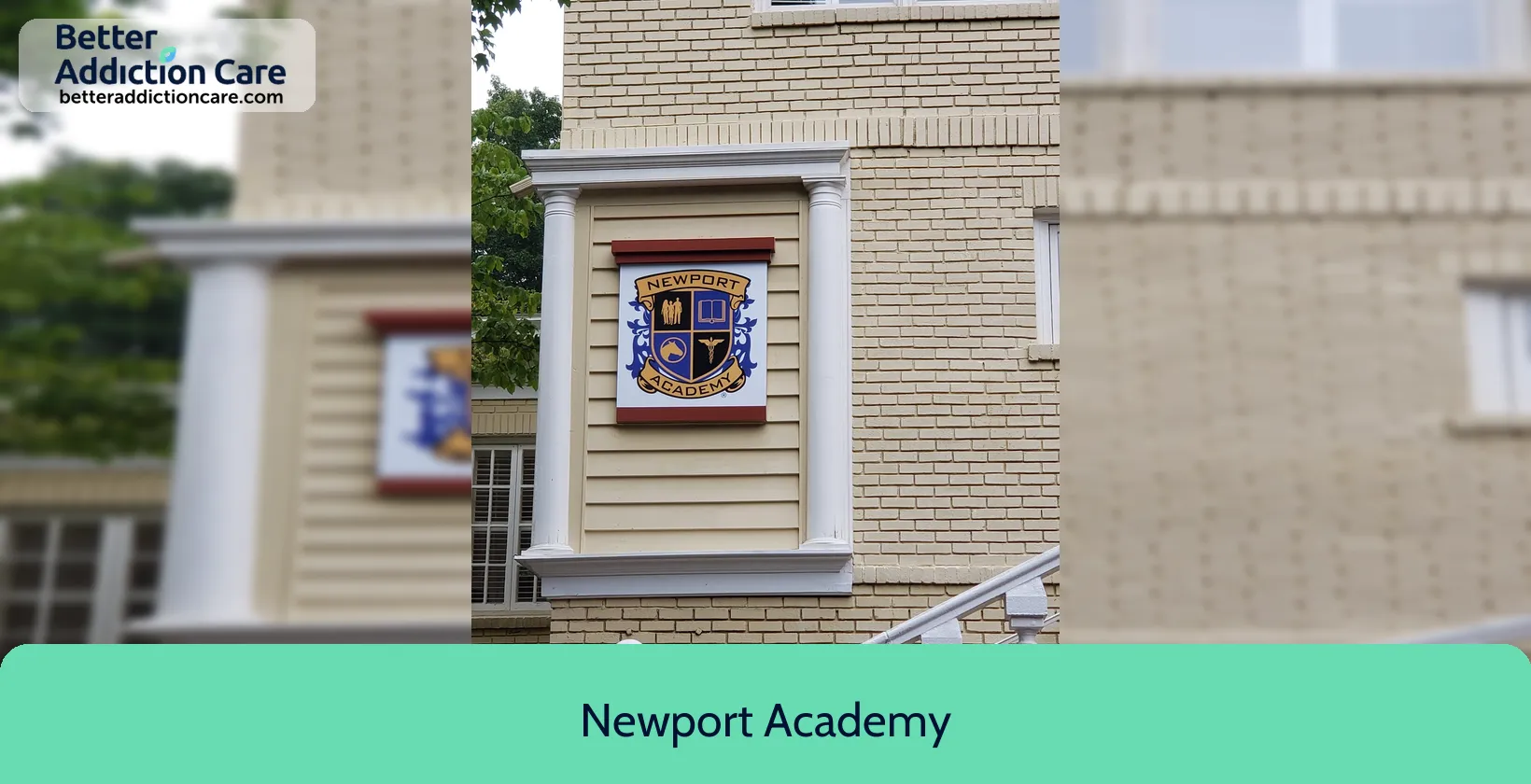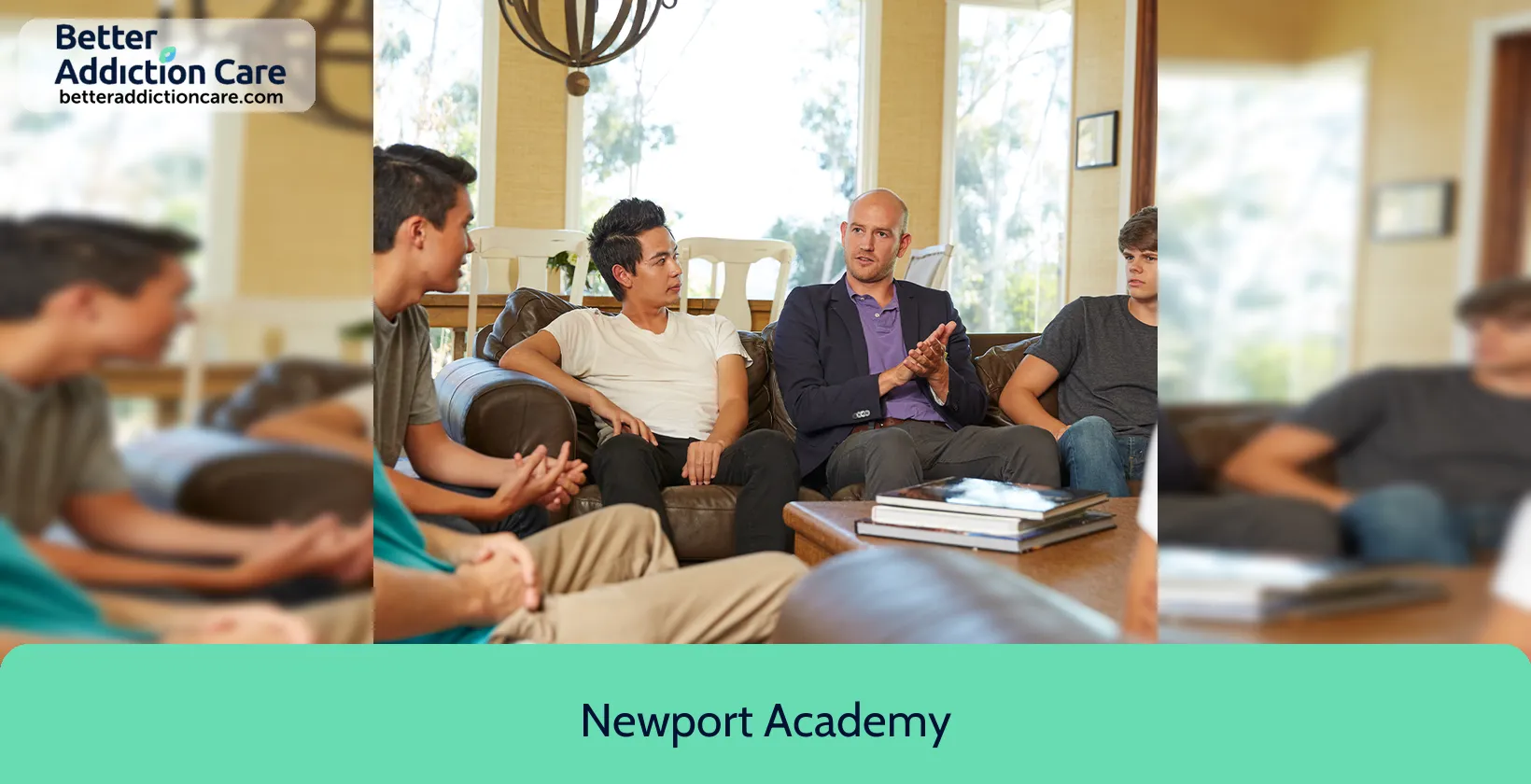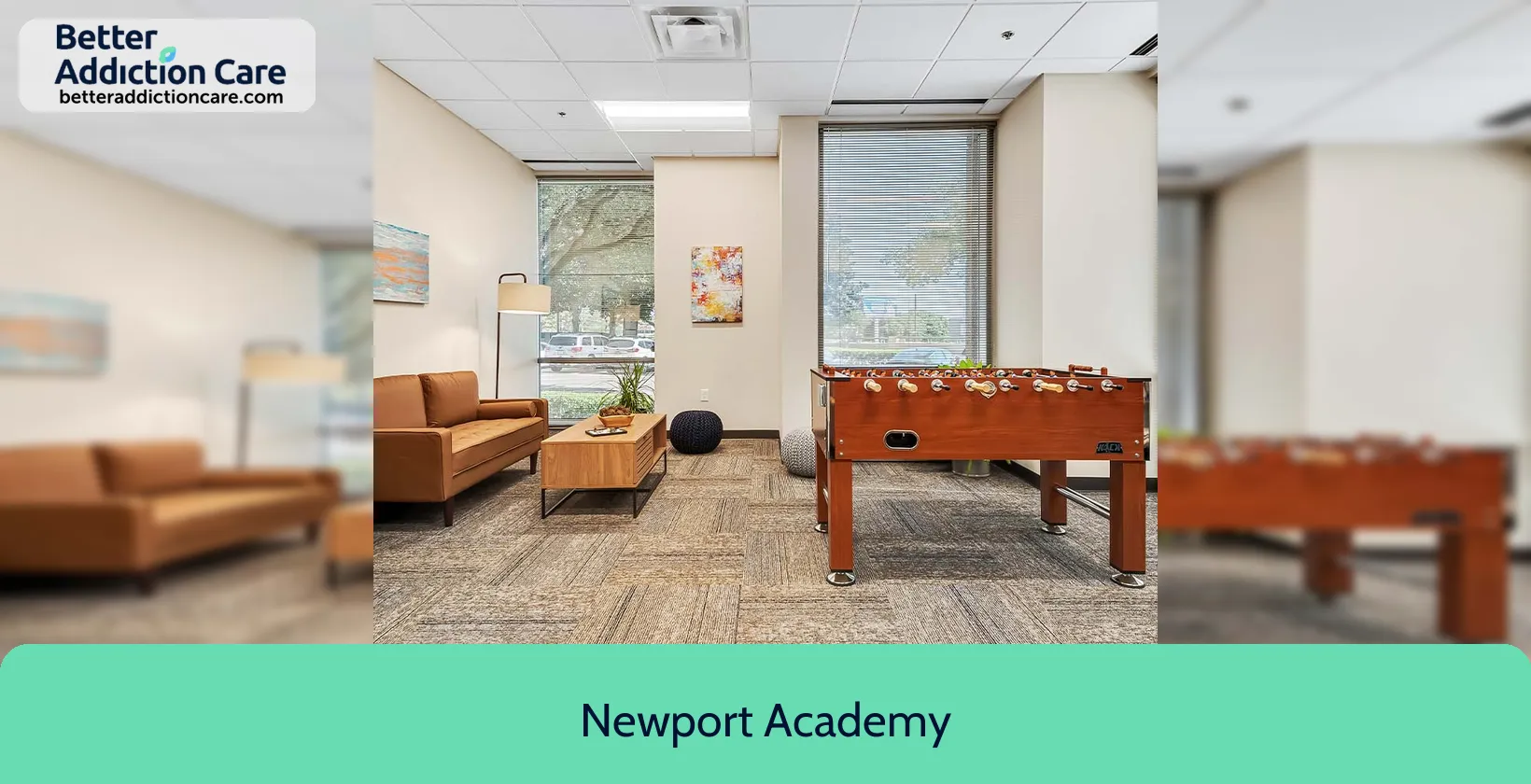Newport Academy
Overview
Newport Academy is an mental health treatment center that provides inpatient and outpatient treatment for men from 16+ years of age. As part of their special programs, Newport Academy treats clients with co-occurring mental and substance use disorders, clients who have experienced trauma, and children/adolescents with serious emotional disturbance (sed). To help patients achieve sobriety, Newport Academy provides intake assessments. Afterward, patients receive couples/family therapy, group counseling, and cognitive behavioral therapy during treatment. Newport Academy is located in Atlanta, Georgia, providing treatment for people in Fulton County, accepting cash or self-payment and private health insurance.
Newport Academy at a Glance
Payment Options
- Cash or self-payment
- Private health insurance
Assessments
- Comprehensive mental health assessment
- Comprehensive substance use assessment
Age Groups
- Children/adolescents
Ancillary Services
- Diet and exercise counseling
- Education services
- Family psychoeducation
- Integrated primary care services
- Psychosocial rehabilitation services
Highlights About Newport Academy
6.68/10
With an overall rating of 6.68/10, this facility has following balanced range of services. Alcohol Rehabilitation: 8.00/10, Drug Rehab and Detox: 6.00/10, Insurance and Payments: 6.00/10, Treatment Options: 6.73/10.-
Alcohol Rehabilitation 8.00
-
Treatment Options 6.73
-
Drug Rehab and Detox 6.00
-
Insurance and Payments 6.00
Treatment At Newport Academy
Treatment Conditions
- Alcoholism
- Mental health treatment
- Substance use treatment
- Co-occurring Disorders
Care Levels
- Hospital inpatient treatment
- Partial Hospitalization Program
- Outpatient
Treatment Modalities
- Couples/family therapy
- Group counseling
- Cognitive behavioral therapy
- Dialectical behavior therapy
- Integrated Mental and Substance Use Disorder treatment
Ancillary Services
Special Programs
- Clients with co-occurring mental and substance use disorders
- Clients who have experienced trauma
- Children/adolescents with serious emotional disturbance (SED)
Get Help Now
Common Questions About Newport Academy
Contact Information
Other Facilities in Atlanta

6.96

6.77

7.23

6.65

6.62

6.96

6.71

6.74
DISCLAIMER: The facility name, logo and brand are the property and registered trademarks of Atlanta Medical Center DT - Behavioral Health Services, and are being used for identification and informational purposes only. Use of these names, logos and brands shall not imply endorsement. BetterAddictionCare.com is not affiliated with or sponsored by Atlanta Medical Center DT - Behavioral Health Services.
